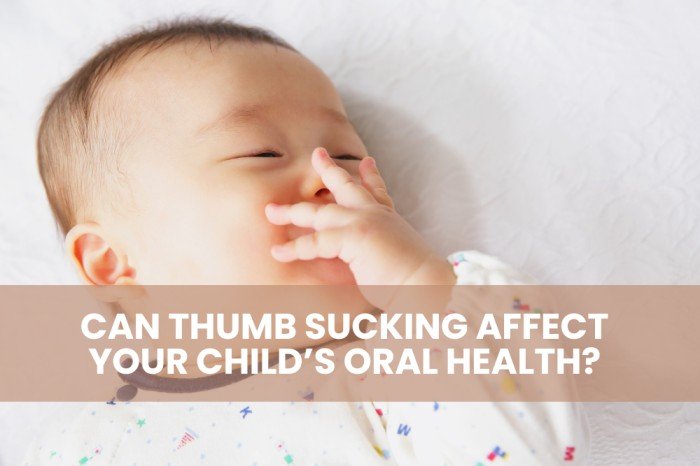One common habit that almost every child develops is sucking their thumb. In fact, it is a natural reflex in infants and toddlers, most likely developed due to the habit of breastfeeding. It provides a sense of security and comfort and helps many children fall asleep.
It may not be a concern during the early stages of infancy, but it can become a serious health concern if it continues through the later years. When jaws and teeth are just developing, they can create severe oral health hazards.
In this blog, we’ll explore how thumb sucking can impact dental development, when it becomes a concern, and what steps parents can take to intervene.
Why Do Children Suck Their Thumbs?
Thumb sucking usually begins in the infant stage. It has been observed even in the womb in some cases. It has been considered to be a stress and anxiety management mechanism.
However, most children outgrow this habit by the age of 4 years. However, if the habit continues beyond the age of 5, when permanent teeth start to come in, it can interfere with proper oral and facial development.
When Does Thumb Sucking Become a Problem?
The intensity of thumb sucking decides the impact on one’s health. If your child simply rests the thumb in the mouth, it may not be a concern. But vigorous thumb sucking may be something to worry about. It is more likely to lead to dental complications.
According to pediatric dentists, thumb sucking becomes problematic when:
- It continues past the age of 4-5
- It is frequent and forceful
- It interferes with speaking or eating habits
- It affects the positioning of teeth and jaw alignment
Oral Health Problems Caused by Thumb Sucking
There are many ways thumb sucking can impact the oral health of your child.
Misaligned teeth
Thumb sucking puts pressure on the upper front teeth and the palate (roof of the mouth). Over time, this can lead to malocclusion, where the teeth do not meet properly when the jaws are closed.
This can result in issues like
- Open bite – It refers to the gap between the upper and lower front teeth.
- Overbite – Upper teeth may protrude excessively over the lower teeth.
Changes in Jaw and Palate Development
Chronic thumb sucking can cause the upper jaw to become narrower, leading to a high-arched palate. This may result in improper alignment and require orthodontic treatment in the future.
Speech difficulties
An altered oral structure caused by thumb sucking may affect the way your child forms sounds. Lisping, difficulty pronouncing certain letters, and delayed speech development are commonly associated with prolonged thumb sucking.
Other health issues apart from oral issues
Thumb sucking can also have a few other health concerns apart from an impact over oral health.
Skin Problems and Infections
Constant moisture and friction can lead to skin issues on the thumb, such as cracking, calluses, or even infections. In some cases, children may even develop nail deformities or soreness in the thumb.
Social and Emotional Impact
Children who continue to suck their thumbs at school age may face teasing from peers. This can affect their confidence, self-esteem, and social development.
Tips to Help Your Child Stop Thumb Sucking
Pediatric dentists and other child care specialists suggest a wide range of ways to stop your child from thumb sucking.
- Use Positive Reinforcement: Praise your child or offer small rewards when they avoid thumb sucking. They should be encouraged that way during challenging times like bedtime or stress.
- Identify Triggers: Help your child understand when and why they suck their thumb. In many cases, it can be due to boredom, anxiety, and similar triggers. Address those emotions with alternative soothing techniques.
- Offer Substitutes: Encourage the use of a comfort toy, blanket, or other alternatives that provide reassurance. Make sure that these alternatives are clean.
- Gentle Reminders: Avoid punishing or shaming your child. Instead, use visual cues or gentle reminders when they unconsciously revert to thumb sucking. Punishments or shaming can further increase anxiety levels. This will further result in increased thumb-sucking behaviour, albeit away from you.
- Thumb Guards or Bitter Nail Polish: These can make thumb sucking less pleasant and gradually reduce the habit.
- Consult a Pediatric Dentist: Professional guidance is especially important if the habit continues past age 5 or causes noticeable dental issues.
Teething issues or any sort of oral issues can also be the cause of thumb sucking. An expert dentist should be able to provide you with better advice.
When to See a Dentist?
Early dental visits are crucial. A pediatric dentist can monitor your child’s oral development. Early checkups can help you spot issues caused by thumb sucking before they become severe. Intervention at the right time can prevent the need for extensive orthodontic work later in life.
Apart from that, you may also need to consult a dental expert if your child does not typically leave the habit. Child psychologists can also help if the child has any issues related to stress and anxiety.
In Conclusion
While thumb sucking is a common and usually harmless habit in early childhood, prolonged sucking can lead to significant oral health challenges. From misaligned teeth and speech problems to jaw development concerns, the effects can be far-reaching if not addressed in time.
If you’re concerned about your child’s thumb sucking and its impact on their dental health, STEPS Clinic in Dubai offers expert pediatric dental services to guide parents through safe and effective habit correction. Our compassionate team specializes in early dental care, ensuring your child’s smile remains healthy, confident, and bright. Visit the STEPS Clinic or contact us to schedule a consultation and give your child the gift of lifelong oral wellness.

